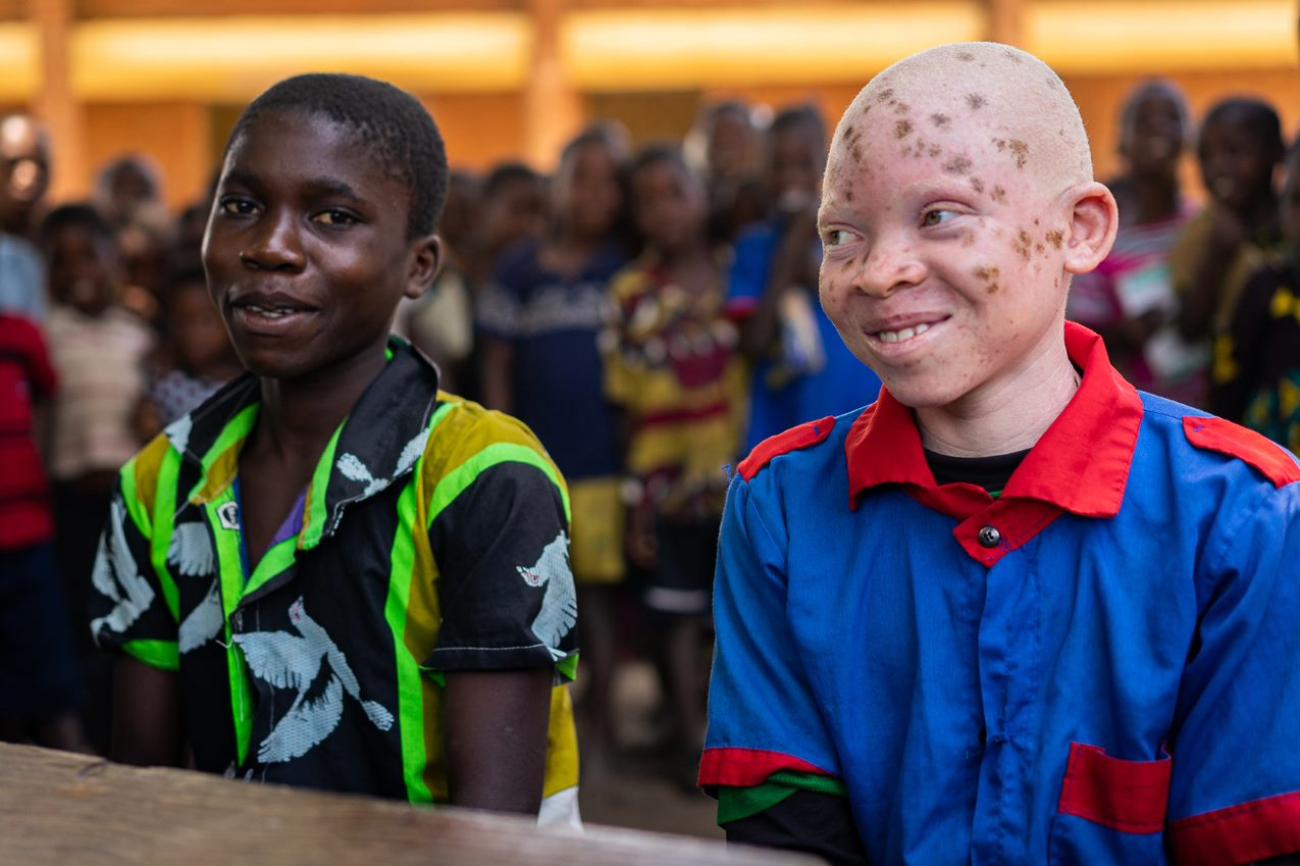Today, Malawi joins the world to commemorate the 10th International Albinism Awareness Day (IAAD) under the theme: “A decade of collective progress.” In Malawi, we have decided to focus our local commemoration theme on "United to Empower and Protect Persons with Albinism During the Period of Elections," We reflect on a decade of collective progress, but also the immense challenges that still confront us. This year's theme extends its focus across all sectors, fostering unity and advocating against attacks on persons with albinism, particularly during election campaign periods.
An African proverb states, "When there is no enemy within, the enemies outside cannot hurt you." This speaks to our mission today. To build a just and inclusive society for persons with albinism, we must foster unity and strength within our communities, enabling us to combat external threats and challenges effectively.
Persons with albinism represent a small but formidable part of Malawi's population, with close to 135,000 individuals, according to the 2018 Population and Housing Census report. Despite constitutional provisions safeguarding their rights, their fundamental right to life remains under threat due to pervasive violent physical attacks fuelled by myths, misinformation, and misconceptions. This situation is exacerbated by insufficient awareness among the general public about the rights of persons with albinism.
Since 2018, the Government of Malawi, along with various key stakeholders, including the United Nations, has implemented a multi-sectoral National Plan of Action on Albinism. This plan has led to significant strides in providing safety and security, improving access to health services and education, and economically and socially empowering Persons with Albinism to live self-sustaining lives and advocate for their rights.
Despite these positive strides, the country continues to record attacks and discrimination cases. Statistics show that 49% of all albinism-related cases in Malawi occurred during election campaign periods. For example, during the most recent election cycle (2018 to 2020), 49 attacks were recorded, while 57 cases were registered from 2014 to 2015. These attacks have a devastating impact on the victims and their families, compounded by the lack of justice or accountability for perpetrators. This calls for continued awareness-raising throughout society to foster respect for the rights and dignity of Persons with Albinism and combat stereotypes, prejudices, traditional beliefs, and myths surrounding albinism.
We cannot turn a blind eye to these heinous crimes. It is our collective responsibility to ensure that justice is served swiftly and effectively. I implore the justice system to expedite prosecutions, sending a clear message that such acts will not be tolerated in our society.
In addition to addressing these immediate challenges, it is essential to recognize the international frameworks and conventions that Malawi has signed to protect the rights of persons with albinism. The United Nations Convention on the Rights of Persons with Disabilities, the African Charter on Human and People's Rights, and the Malawi National Action Plan on Albinism are just a few of the instruments that underscore our commitment to safeguarding the well-being and dignity of persons with albinism. It is imperative that we align our actions with these commitments, translating them into tangible results on the ground.
The United Nations in Malawi is fully committed to supporting the Malawi Government in its tireless efforts to combat the various challenges faced by persons with disabilities, including those with albinism. Through collaborative initiatives, we aim to create an environment that upholds their rights, promotes their inclusion, and ensures their safety and well-being.
Our efforts must be holistic and sustained. We need the collective commitment and concerted efforts of all stakeholders – government agencies, civil society organizations, community leaders, and individuals – to create a society that embraces diversity, rejects discrimination, and upholds justice. It is incumbent upon national and local leaders to take a firm stand against violence and discrimination. We must foster a zero-tolerance approach, holding accountable those who perpetrate harm against persons with albinism.
Moreover, we must address the underlying factors that contribute to these acts of violence. Poverty, cultural beliefs and economic disparities have been identified as significant drivers of such atrocities. By tackling the root causes, we can create an environment where persons with albinism are not vulnerable to exploitation and violence.
In conclusion, let us stand united to empower and protect persons with albinism. Let us ensure that the progress made over the past decade is not only sustained but accelerated. Let us work together to build a society where persons with albinism can live free from fear, with their rights fully protected and their dignity respected.







